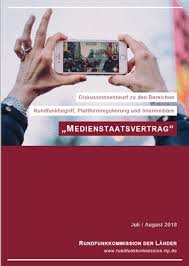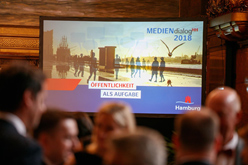Under construction: a fundamental change of the Interstate Treaty
More than 1000 citizens, firms and associations took part in the online consultation on a discussion paper that aims to further develop the Interstate Broadcasting Treaty into an Interstate Media Treaty. The Broadcasting Commission of the Lander had issued a respective invitation and is now analyzing the various comments. In addition, it will hear affected parties in expert talks during the winter months. The planned Interstate Media Treaty is essentially about the following. Firstly, the licensing regime for broadcasting is to become more flexible and liberal. Secondly, platform regulation is to be extended to all user interfaces that structure access to broadcasting; a privileged rule for finding certain content is also under discussion. Thirdly: media intermediaries shall be included in the regulation of the Interstate Treaty, transparency rules and non-discrimination requirements have been proposed for them.
Btw: There are still a few square [brackets] in the draft which indicate a lack of consensus among the Lander – observers are curious as to whether and how opinions will change after the analysis of the submissions.



